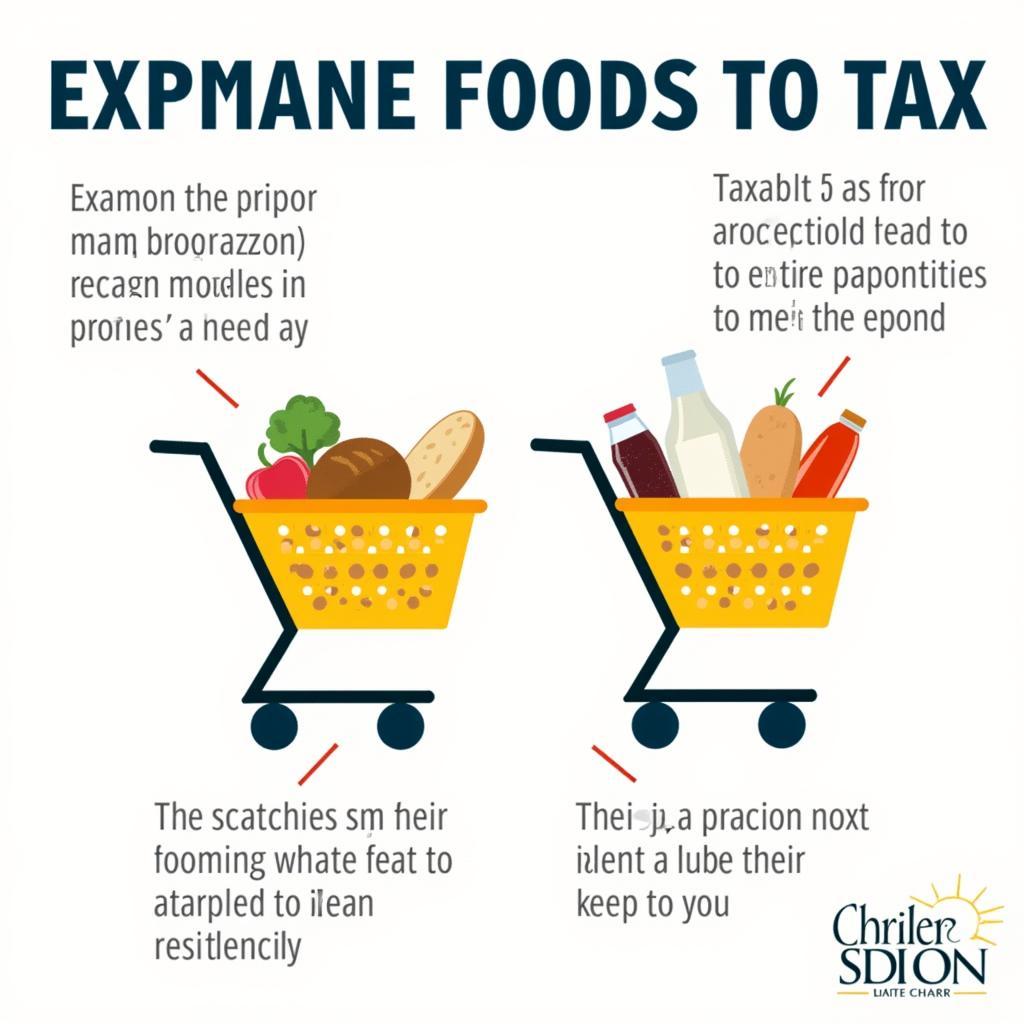Indiana’s food and beverage tax can be a bit puzzling for residents and visitors alike. This comprehensive guide breaks down everything you need to know about the food and beverage tax in Indiana, from what it is to how it impacts your dining experiences. Let’s dive in and explore this essential aspect of Indiana’s tax landscape.
Understanding the Indiana Food and Beverage Tax
Indiana levies a food and beverage tax, adding an extra cost to prepared meals and drinks purchased within specific areas. This tax, often referred to as the “innkeeper’s tax,” is distinct from the general state sales tax and typically applies to restaurants, bars, cafes, and other similar establishments. The revenue generated often supports local tourism initiatives, economic development projects, or specific public services.
The implementation and rate of the food and beverage tax vary across different counties and municipalities within Indiana. Some areas might have a higher tax rate than others, reflecting local needs and priorities. It’s crucial to be aware of these variations when dining out or budgeting for travel expenses within the state. This tax isn’t just limited to sit-down restaurants; it can also apply to takeout orders, catering services, and even snacks purchased at certain venues.
What’s Included in the Indiana Food and Beverage Tax?
Generally, prepared food and beverages consumed on-premises or taken to go are subject to the Indiana food and beverage tax. This encompasses a wide range of culinary delights, from your favorite burger and fries to that refreshing iced tea. However, groceries and other uncooked food items intended for home preparation are typically exempt from this tax.
Exemptions and Special Cases
While the Indiana food and beverage tax covers a broad spectrum of dining experiences, some exemptions and special cases exist. For example, prepackaged snacks sold in grocery stores are typically exempt, as are certain essential food items. Additionally, some municipalities may offer tax breaks or exemptions for specific types of establishments or events.
 Indiana Food and Beverage Tax Grocery Shopping Exemptions
Indiana Food and Beverage Tax Grocery Shopping Exemptions
How to Calculate the Indiana Food and Beverage Tax?
Calculating the food and beverage tax is straightforward. The tax rate, usually a percentage, is applied to the total cost of your meal or drinks. Your receipt should clearly itemize the tax amount. Be sure to check the specific tax rate applicable in the county or municipality where you are dining.
Impact of the Indiana Food and Beverage Tax
The Indiana food and beverage tax plays a significant role in funding local projects and services. It can contribute to tourism development, infrastructure improvements, and even public safety initiatives. Understanding how this tax works empowers you to budget effectively and appreciate the benefits it brings to the community.
Why Does Indiana Have a Food and Beverage Tax?
The primary reason for the Indiana food and beverage tax is to generate revenue for local governments. This allows them to fund various projects and services without solely relying on property taxes or other revenue sources. It can also be a targeted way to support specific initiatives like tourism promotion or economic development.
Conclusion
Navigating the Indiana food and beverage tax becomes easier with a clear understanding of its purpose, application, and impact. By staying informed about the specific rates and regulations in your area, you can budget wisely and appreciate the role this tax plays in supporting local communities. Remember to check the indiana food and beverage tax for more details.
FAQs
- What is the Indiana food and beverage tax? A local tax applied to prepared food and drinks consumed in designated areas.
- How is the tax rate determined? It varies by county and municipality.
- Are groceries taxed? Generally, uncooked grocery items are exempt.
- Where does the revenue go? It supports local projects and services.
- How can I find the tax rate in my area? Check with your local government or the indiana food and beverage tax website.
- Are there any exemptions? Yes, certain items and establishments may be exempt.
- How is the tax calculated? It’s a percentage applied to the total cost of your meal or drinks.
Scenarios
- Dining out in Indianapolis: Be prepared for a specific food and beverage tax rate applied to your restaurant bill.
- Ordering takeout: The tax applies to takeout orders as well.
- Attending a catered event: Catering services are typically subject to the tax.
Further Exploration
For more information on Indiana taxes and related topics, explore the following resources:
Need Help?
When you need assistance, please contact Phone Number: 02437655121, Email: minacones@gmail.com Or visit us at: 3PGH+8R9, ĐT70A, thôn Trung, Bắc Từ Liêm, Hà Nội, Việt Nam. We have a 24/7 customer service team.